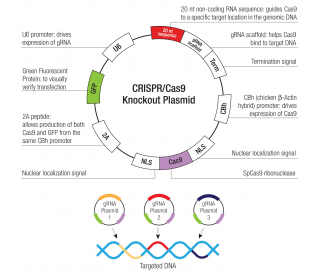Purity
>97%, by SDS-PAGE under reducing conditions and visualized by silver stain
Endotoxin Level
<0.10 EU per 1 μg of the protein by the LAL method.
Activity
Measured by its ability to chemoattract BaF3 mouse pro‑B cells transfected with human CCR5. The ED 50 for this effect is 1.5-6 ng/mL.
Source
E. coli-derived Ala24-Ala92
Accession #
N-terminal Sequence
AnalysisAla24
Predicted Molecular Mass
7.9 kDa
Carrier Free
What does CF mean?
CF stands for Carrier Free (CF). We typically add Bovine Serum Albumin (BSA) as a carrier protein to our recombinant proteins. Adding a carrier protein enhances protein stability, increases shelf-life, and allows the recombinant protein to be stored at a more dilute concentration. The carrier free version does not contain BSA.
What formulation is right for me?
In general, we advise purchasing the recombinant protein with BSA for use in cell or tissue culture, or as an ELISA standard. In contrast, the carrier free protein is recommended for applications, in which the presence of BSA could interfere.
1061-RM/CF |
| 1061-RM |
Formulation Lyophilized from a 0.2 μm filtered solution in Acetonitrile and TFA. | Formulation Lyophilized from a 0.2 μm filtered solution in Acetonitrile and TFA with BSA as a carrier protein. | |
Reconstitution Reconstitute at 100 μg/mL in sterile PBS. | Reconstitution Reconstitute at 10 μg/mL in sterile PBS containing at least 0.1% human or bovine serum albumin. | |
Shipping The product is shipped at ambient temperature. Upon receipt, store it immediately at the temperature recommended below. | Shipping The product is shipped at ambient temperature. Upon receipt, store it immediately at the temperature recommended below. | |
Stability & Storage: Use a manual defrost freezer and avoid repeated freeze-thaw cycles.
| Stability & Storage: Use a manual defrost freezer and avoid repeated freeze-thaw cycles.
|
Background: CCL3/MIP-1 alpha
CCL3, also known as macrophage inflammatory protein 1 alpha (MIP-1 alpha ) and LD78, is a member of the beta or CC subfamily of chemokines and is closely related to CCL4/MIP-1 beta. Chemokines comprise a large family of small secreted proteins that are involved in immune and inflammatory responses. CCL3 expression can be induced in a variety of hematopoietic cells, fibroblasts, smooth muscle cells, and epithelial cells (1). Mature cotton rat CCL3 shares 70%, 82%, and 88% amino acid sequence identity with human, mouse, and rat CCL3, respectively. CCL3 is an approximately 8 kDa chemokine that forms complexes with sulfated proteoglycans (2, 3). In a reversible process, CCL3 associates into noncovalently-linked dimers which then form tetramers and high molecular weight polymers (4, 5). These complexes of CCL3 are protected from proteolytic digestion by insulin degrading enzyme (IDE) which can cleave the monomeric chemokine (5). CCL3 exerts its biological functions through interactions with CCR1, CCR3, and CCR5 (1). It is cleared from the extracellular space by internalization via the decoy chemokine receptor D6 (6). CCL3 promotes the chemoattraction, adhesion to activated vascular endothelium, and cellular activation of many hematopoietic cell types including activated T cells, NK cells, neutrophils, monocytes, immature dendritic cells, and eosinophils (1, 7 - 9). CCL3 is also known as stem cell inhibitor (SCI) and can inhibit the proliferation of hematopoietic progenitor cells (2). CCL3 bioactivity contributes to tumor metastasis and the inflammatory components of viral infection, rheumatoid arthritis, and hepatitis (10 - 13), although it also can suppress the replication of HIV (14). CCL3 additionally promotes hyperalgesia by sensitizing sensory neurons to TRPV1-mediated noxious stimulation (15).
References:
Menten, P. et al. (2002) Cytokine Growth Factor Rev. 13:455.
Graham, G.J. et al. (1990) Nature 344:442.
Wagner, L. et al. (1998) Nature 391:908.
Graham, G.J. et al. (1994) J. Biol. Chem. 269:4974.
Ren, M. et al. (2010) EMBO J. 29:3952.
Weber, M. et al. (2004) Mol. Biol. Cell 15:2492
Taub, D.D. et al. (1993) Science 260:355.
Bernardini, G. et al. (2008) Blood 111:3626.
Lee, S.C. et al. (2000) J. Immunol. 164:3392.
Wu, Y. et al. (2008) J. Immunol. 181:6384.
Cook, D.N. et al. (1995) Science 269:1583.
Chintalacharuvu, S.R. et al. (2005) Immunol. Lett. 100:202.
Ajuebor, M.N. et al. (2004) Eur. J. Immunol. 34:2907.
Cocchi, F. et al. (1995) Science 270:1811.
Zhang, N. et al. (2005) Proc. Natl. Acad. Sci. 102:4536.
Entrez Gene IDs:
6348 (Human); 20302 (Mouse); 25542 (Rat); 448787 (Canine)
Alternate Names:
C-C motif chemokine 3; MIP1-(a); AI323804; CCL3; chemokine (C-C motif) ligand 3; G0S19-1; LD78a; LD78alpha; MIP1 alpha; MIP-1 alpha; Mip1a; MIP-1alpha; MIP1-alpha; Scya3










